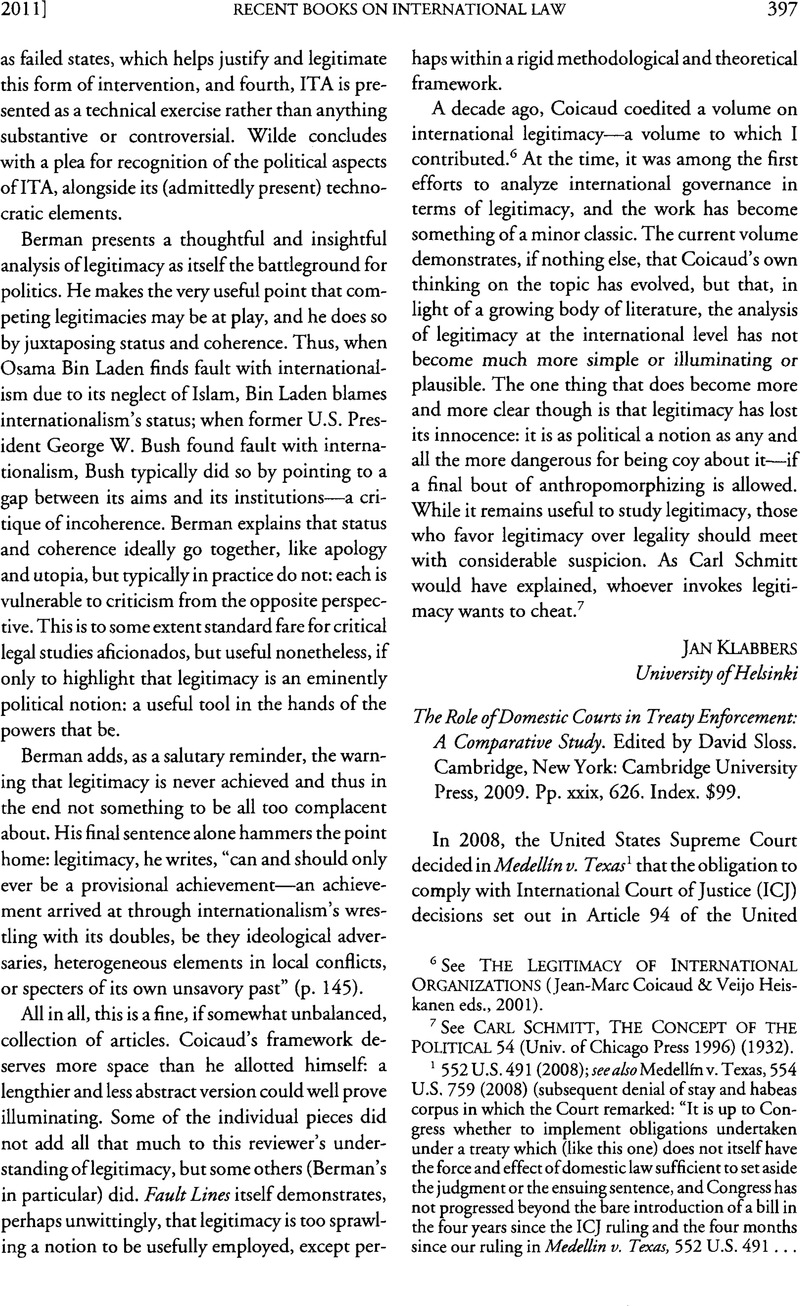No CrossRef data available.
Article contents
The Role of Domestic Courts in Treaty Enforcement: A Comparative Study. Edited by David Sloss. Cambridge, New York: Cambridge University Press, 2009. Pp. xxix, 626. Index. $99.
Published online by Cambridge University Press: 27 February 2017
Abstract

- Type
- Recent Books on International Law
- Information
- Copyright
- Copyright ©by the American Society of International Law,2011
References
1 552 U.S. 491 (2008); see also Medellín v. Texas, 554 U.S. 759 (2008) (subsequent denial of stay and habeas corpus in which the Court remarked: “It is up to Congress whether to implement obligations undertaken under a treaty which (like this one) does not itself have the force and effect of domestic law sufficient to set aside the judgment or the ensuing sentence, and Congress has not progressed beyond the bare introduction of a bill in the four years since the ICJ ruling and the four months since our ruling in Medellin v. Texas, 552 U.S. 491 . . . (2008).”). But see id. at 763 (Breyer, J., dissenting) (noting that “the United States was bound by treaty to follow the ICJ’s determination as a matter of international law”).
2 Avena (Mex. v. U.S.), 2004ICJ Rep. 12 (Mar. 31); see also Request for Interpretation of the Judgment of 31 March 2004 in the Case Concerning Avena and Other Mexican Nationals (Mex. v. U.S.), 2009 ICJ Rep. (Jan. 19).
3 See ABA-ASIL, Report of The Joint Task Force on Treaties in U.S. Law (2009), at http://www.asil.org/files/TreatiesTaskForceReport.pdf (includes report annexes) and http://www.abanet.org/leadership/2010/midyear/daily_jourmal/108C.pdf (includes ABA resolution approving report’s recommendations) [hereinafter Task Force Report]. [Editor’s Note: The reviewer was chair of this task force.]
4 See Task Force Report, supra note 3.
5 Indeed, one cannot find a U.S. amicus brief filed in the Supreme Court that does more than give cursory lip service to the Vienna Convention, without employing Articles 31 and 32 as a means of actually interpreting the treaty at issue. one can speculate that the solicitor general’s office does not believe that kind of argument will persuade the Supreme Court. Some lower U.S. courts have, however, applied these provisions. E.g., Chubb & Son, Inc. v. Asiana Airlines, 214 F.3d 301,307–09 (2d Cir. 2000), cert, denied, 533 U.S. 928 (2001




